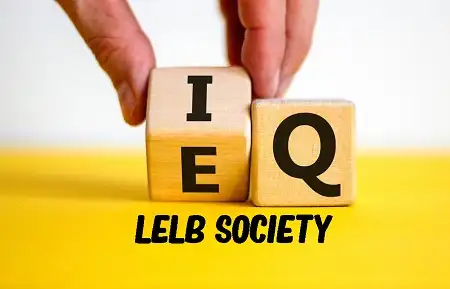English Vocabulary about Body Language
English Vocabulary about Body Language
A pat on the back (idiom)
He deserves a pat on the back after graduating from college with a high grade.
Since he is a dead loss when it comes to multitasking, he should not wait for a pat on the back.
Beckon (noun & verb)
It was always a gentle nudge beckoning me to persist with difficult situations.
If you beckoned me, I would have stopped whispering.
She nudged me to beckon the committee forward through the entrance gateway.
Gesticulate (verb)
In my personal experience, people who are used to gesticulating during speaking, act unnaturally while telling lies.
I believe that lack of gesticulation during a speech culminates with monotony.
Give somebody the raspberry (idiom)
The people in the stadium booed the opposing team by giving them the raspberry.
Sometimes, giving someone the raspberry can be regarded as a reprimand.
Nod (noun & verb)
The tour guide asked us to nod our understanding of his accent.
Is it boastful to nod, when it comes to a marriage proposal?
Nonverbal / nɒnvɜb ə l◂ $ nɑnvɜr- / (adj)
Nonverbal means the state of communicating with others without the aid of words and sentences, nonlinguistic transmission of information.
Scowling is an apparent example of nonverbal communication.
Were you to use nonverbal communication, you would not be able to convey your messages impeccably.
Scowl (noun & verb)
Being made so furious at the hospital, I scowled at nurses bitterly.
See eye to eye (idiom)
If two people see eye to eye, they agree with each other
What I am trying to establish is to see eye to eye with each other on every detail of the plan.
Sign language (noun)
Knowing sign language is a vital versatility for the people who live with a hearing-impaired person.
It is so wonderful that deaf people can take part in society and interact with others by means of sign language.
Shrug (noun & verb)
Although many attempts were made to make my neighbor aware of his disturbance to local residents, he simply shrugged his shoulders stubbornly.
It seems you are careless of my problems in that (inasmuch as) you almost always shrug your shoulders and show your inattention.




while hearing handicapped people use sign language to communicate others, it also can be considered as one of the most international communication method.
* to communicate with others
* it can also be considered one of the most international communication methods
Reply to “sign language”
Knowing the sign language is a vital versatility for the people who lives with a hearing-impaired person.
* for the people who live
✔It is so wonderful that deaf people can take part in society and interact with others by means of sign language.
Absolutely! Sign language opens up a world of communication and inclusion, allowing deaf individuals to fully engage with society. It’s amazing how this rich, expressive language fosters connections and understanding, breaking down barriers and bringing people together.
People who are hearing-impaired communicate with others by sign language.
Yes, sign language is an incredible tool that empowers people who are hearing-impaired to connect and communicate effectively with others.
Reply to this idiom: “a pat on the back”
He deserves a pat on the back after accomplishing college with a high grade.
* after graduating from / finishing college
✔ Since he is a dead loss when it comes to multitasking, he should not wait for a pat on the back.
You could be really incompetent in multitasking, yet deserve so much praise at singletasking. Actually it depends on your position and responsibilities.
Reply to “gesticulate”
In my personal experience, people who used to gesticulate during speaking, their gesticulation gets abnormal and unnatural while they are lying.
* people who are used to gesticulating (to show a habitual action)
* The subject of the last clause must be “people” as well because “who are used to gesticulating during speaking” is just an adjective clause and could be omitted.
Therefore the correct sentence could be:
People who are used to gesticulating, act/gesticulate abnormally and unnaturally while they are lying.
Excellent! That’s right.
✔ I believe that lack of gesticulation during a speech culminates with monotony.
Yes, and I agree with you.
Reply to this idiom: “give somebody the raspberry”
The people in the stadium boo the opponent’s players by giving them the raspberry.
* the opposing team
* … were booing / booed / are booing
✔Sometimes, giving a raspberry can regarded as a reprimand.
… giving somebody the raspberry can be regarded as a reprimand.
Reply to “scowl”
✔Being made so furious at the hospital, I scowled at nurses bitterly.
I understand that feeling frustrated or upset in a hospital setting can be very challenging. However, it’s important to remember that nurses and medical staff are often working under high-stress conditions, doing their best to provide care and support.
Reply to “nod”
The tour guide asked us to nod our understanding of his accent.
Understanding different accents can sometimes be a challenge, but nodding to show that you’re following along is a courteous and effective way to communicate. It’s great that the tour guide found a simple way to ensure everyone was on the same page.
✔Is it boastful to node, when it comes to a marriage proposal?
* Is it boastful to nod …
Reply to “shrug” (noun & verb)
Although many attempts has been carried out to make my neighbor aware of his disturbance to local residents, he shrugged his shoulders stubbornly.
* Many attempts have been
* The tenses of the sentences do not match. It’s better to say:
he simply shrugs … Note that in the first sentence, you’ve used present perfect tense, and it means that the action is not over and its’ different from simple past tense. As a result, you cannot say “he shrugged…”.
✔It seems you are careless of my problems in that (inasmuch as) you almost always shrug your shoulders and show your inattention.
I understand that it can be frustrating when it feels like someone isn’t paying attention to your concerns. It’s important to communicate openly and let them know how their actions make you feel. Perhaps explaining the impact of their behavior can help them realize the importance of showing empathy and attentiveness.
Reply to “beckon”
It was always a gentle nudge beckoning me to persist with difficult situations.
She nudged me to beckon the committee forward through the entrance gateway.
It sounds like those gentle nudges were significant in encouraging persistence and guiding progress. Subtle encouragement can make a big difference!
✔If you beckoned me, I would have stopped whispering. [Mixed Conditionals]
Great! We’ll focus on “mixed conditionals” in our next grammar lesson.
Reply to this idiom: “see eye to eye with somebody on / about something”
What I am trying to establish is to see eye to eye with each other on every detail of the plan.
It’s essential to aim for a shared understanding and agreement on every detail of the plan. This helps ensure everyone is on the same page and can work together effectively towards a common goal.
►If two people see eye to eye, they agree with each other
✔The project would bear fruit, providing we see eye to eye on the benefits.
Absolutely, having a shared vision and understanding of the benefits can greatly enhance the success of the project. Alignment on key aspects ensures that everyone is working towards the same goals and can lead to fruitful outcomes.
Reply to “nonverbal”
“nonverbal” means to communicate with others without the aid of words and sentences.
Scowl is an apparent example of nonverbal communication.
A scowl / scowling is …
“nonverbal” is not a verb. So, don’t say: “nonverbal” is TO communicate. Say: “Nonverbal” is the state / condition / quality of communicating …
There was another comment about “obesity” that took the role of subject, but it is uncountable and “Scowl” is countable and that’s why it needs “a” while “obesity” doesn’t and I mix them up.
Precisely!
►Nonlinguistic transmission of information.
✔Were you to use nonverbal communication, you would not be able to convey your messages impeccably.
* Remove the full stop after “information” because it’s not a sentence.